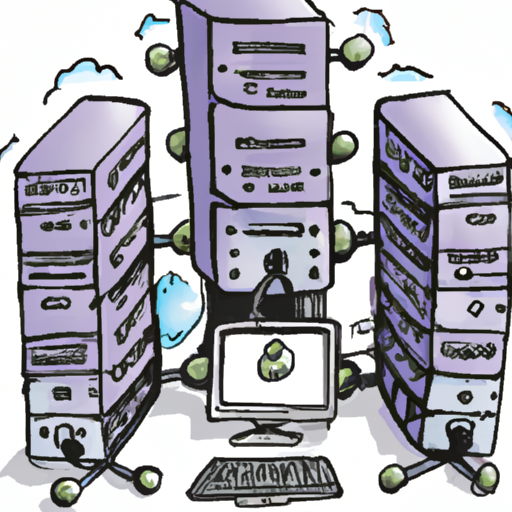The Pros and Cons of Shared Web Hosting
Weighing the Benefits and Drawbacks of Shared Web Hosting

What is shared web Hosting ?
Shared web hosting is a popular choice for individuals and small businesses as it offers an affordable way to host a website. One of the biggest pros is the cost-effectiveness. Shared web hosting plans are generally cheaper than other hosting options, making it an excellent choice for those on a budget. However, this cost-saving comes with a downside. Shared hosting means that your website is sharing server space with other websites, which can result in slower loading times and decreased server reliability. Additionally, if another website on the shared server experiences a spike in traffic or a security breach, it can affect your website’s performance and security. Overall, while shared web hosting can be a great option for those looking for an affordable hosting solution, it’s important to consider the potential drawbacks and ensure that your website’s needs can be met by a shared hosting plan.


Pros and Cons of Shared Web Hosting
When it comes to hosting a website, shared web hosting is a popular option for many businesses and individuals. This type of hosting involves multiple websites sharing a single server and its resources. While shared web hosting offers several benefits, it also has its drawbacks. In this article, we will take a closer look at the pros and cons of shared web hosting.
Pros: 
1. Cost-effective: Shared web hosting is a budget-friendly option for those who don’t want to spend a lot of money on hosting. Since multiple websites are hosted on a single server, the cost is divided among them, making it more affordable than other hosting types.
2. Easy to set up: Shared web hosting is easy to set up, even for those who have little to no technical expertise. Most hosting providers offer user-friendly control panels that make it easy to manage your website and install applications.
3. Scalability: Shared web hosting allows you to scale your website as your business grows. Most hosting providers offer different plans with varying resources to suit your needs. You can upgrade to a higher plan as your website’s traffic increases.
4. Maintenance and security: Hosting providers take care of server maintenance and security, which means you don’t have to worry about it. They also provide regular backups to ensure your website’s data is safe.
Cons: 😡
1. Limited resources: Since multiple websites are hosted on a single server, the resources are shared among them. This can lead to slower website speed and performance, especially during peak traffic hours.
2. Security risks: Shared web hosting can be risky for sensitive data and eCommerce websites. If one website on the server is hacked, it can affect all the other websites on the server.
3. Lack of control: Since you are sharing the server with other websites, you have limited control over its settings and configurations. You may not be able to install certain applications or make changes to the server settings.
4. Downtime: If one website on the server experiences high traffic or technical issues, it can affect the other websites on the server, causing downtime for all of them.
In conclusion, shared web hosting offers several benefits, including cost-effectiveness, easy setup, scalability, and maintenance and security. However, it also has its drawbacks, including limited resources, security risks, lack of control, and downtime. When choosing a hosting type, it’s important to weigh the pros and cons and choose the one that best suits your needs and budget.
MORE : How to Improve the Loading Speed of a Web Page




